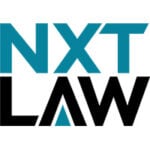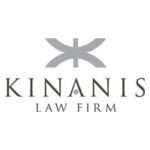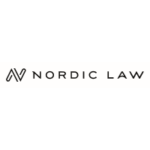-
Please provide a high-level overview of the blockchain market in your jurisdiction. In what business or public sectors are you seeing blockchain or other distributed ledger technologies being adopted?
The blockchain market in New Zealand has experienced considerable growth, and witnessed significant activity, in recent years.
Various New Zealand Government – Te Kāwanatanga o Aotearoa (Government) departments have demonstrated an increased focus in the area, releasing briefing and consultation papers, and reports, into the use of blockchain technology, the need for a regulatory framework that fosters innovation, and in respect of the future of money in New Zealand.
Industries across the public and private sector in New Zealand have begun to adopt blockchain technology, most notably in the primary, technology, arts and culture, food, energy, banking, financial services, and health sectors.
New Zealand-headquartered global organisations are exploring blockchain technology to enhance food traceability and safety, and to ensure sustainable practices.
Agri-businesses are using blockchain solutions to further improve supply chain efficiency and transparency and to facilitate secure transactions.
Major retail banks operating in New Zealand have utilised distributed ledger technology to address inefficiencies in the reconciliation of insurance-related payments, and also to enhance efficiencies in the export sector. With that said, a major concern of market participants and barrier to sector growth, is an inability to obtain banking facilities and/or concerns around debanking.
Multiple businesses have been established, allowing artists to create and sell NFTs and art collectors to track the ‘provenance’ (authenticity and ownership history) of artworks.
The collapse of global exchange FTX and other notable insolvencies have increased regulatory scrutiny globally, including in New Zealand. In February 2024, New Zealand’s lead law enforcement agency for investigating and prosecuting serious financial crime, the Serious Fraud Office (SFO), was reported to be investigating Dasset, a New Zealand cryptoasset exchange that collapsed in August 2023, leaving NZD6.3 million in cryptocurrency unaccounted for. Dasset went into liquidation after losing its banking services resulting in numerous customer complaints about inaccessible funds.
There are still relatively few judicial decisions concerning cryptoassets. The majority of cases focus on insolvency and trust law relating to the collapse of South Island cryptoasset exchange Cryptopia. These include the landmark judgment Ruscoe v Cryptopia Ltd (in liq) (2020) NZHC 728 (Cryptopia) which provides a comprehensive analysis of how cryptoassets are treated under New Zealand law. The court determined that the cryptoassets in issue met the definition of ‘property’ and so were capable of being held on trust; and based on the specific facts, Cryptopia held the cryptocurrencies on trust for its account holders (rather than as company assets subject to ordinary distribution under New Zealand’s liquidation procedure).
As of October 2025, blockchain is still an emerging technology in New Zealand but the interest in it, and the rate of its adoption, continues to grow.
-
Please outline the principal legislation and the regulators most relevant to the use of blockchain technologies in your jurisdiction. In particular, is there any blockchain-specific legislation or are there any blockchain-specific regulatory frameworks in your jurisdiction, either now or envisaged in the short or mid-term?
New Zealand does not currently have any legislative regimes directly targeted at or created for blockchain technologies. This is a result of what The New Zealand Parliament – Pāremata Aotearoa (Parliament) Finance and Expenditure Committee (FEC) has described as an overall cautious or ‘wait and see’ approach to regulating blockchain and other digital asset technologies.
Consequently, blockchain technologies are currently regulated under pre-existing legislation and regulatory frameworks, which have effectively been ‘retrofitted’ to attempt to capture blockchain technologies and related activities. The following legislation has been used to build a regulatory framework:
- the Financial Markets Conduct Act 2013 (FMCA) regulates financial markets, products, and advice, which can include tokens or cryptocurrencies that are offered to the public. If a blockchain-based asset is considered a financial product, it must comply with disclosure and licensing requirements under the FMCA. The regulatory body in charge of monitoring under the FMCA is the Financial Markets Authority (FMA);
- the Anti-Money Laundering and Countering-Financing of Terrorism Act 2009 (AML/CFT Act) can apply to businesses involved in the exchange or transfer of cryptocurrencies and digital assets. The Department of Internal Affairs (DIA) monitors compliance with the AML/CFT Act;
- the Fair Trading Act 1986 (FTA) provides protections in the course of trade. This Act and other consumer protection statutes are overseen by the Commerce Commission (ComCom);
- the Privacy Act 2020 (Privacy Act) governs the handling of personal data. The “data protection principles” such as consent and transparency in data use may apply to blockchain applications that process or store personal information. This Act is overseen by the office of the Privacy Commissioner; and
- the Income Tax Act 2007 (ITA) which governs the taxation of any blockchain-related income. This Act is administered by the Inland Revenue Department (IRD).
Further regulatory bodies which may be involved in regulating market participants in relation to blockchain technologies include:
- the Reserve Bank of New Zealand (RBNZ), which oversees cryptoasset activities and assesses how blockchain technologies impact monetary policy; and
- the Serious Fraud Office (SFO), which oversees serious financial crime and which has recently been involved with the collapse of Dasset.
Looking forward, the Government has acknowledged the potential of blockchain technologies in New Zealand. The Ministry of Business, Innovation and Employment – Hīkina Whakatutuki (MBIE) has recognised blockchain technologies as one of two key trends for New Zealand businesses influencing productivity and well-being in its Briefing Paper regarding the future of business in New Zealand (MBIE Briefing Paper).
The Report of the FEC published in August 2023 (the FEC Report) includes 22 recommendations for the Government, emphasising a balanced regulatory approach. Key recommendations include creating a “Digital Assets Cross-Agency Working Group”, developing educational resources, establishing a regulatory sandbox for testing innovations, and ensuring consumer protection. The report advises against a single primary regulator because of the diverse uses of digital assets and highlights the importance of flexible regulation that evolves with the industry.
In April 2024, the Government issued the Government Response in response to the FEC Report. The Government Response notes the Government’s commitment to “continue to consider matters raised by the [FEC] and monitor international market developments”. Both the FEC Report and the Government Response highlight the need for a regulatory framework that fosters innovation while ensuring consumer protection.
-
What is the current attitude of the government and of regulators to the use of blockchain technology in your jurisdiction?
The Government and key regulators (among others, the FMA, MBIE, DIA, RBNZ, ComCom, SFO and the IRD) continue to regard blockchain technology with a certain level of trepidation, but they acknowledge its utility.
A number of pilot projects have been launched, alongside in-depth research, into the various use-cases for blockchain technology, including (among others) in respect of land registration, the administration of public services, and financial services.
In terms of legislation, Parliament has generally adopted a cautious approach towards introducing blockchain and cryptoasset-specific regulation. Parliament’s Inquiry into the current and future nature, impact, and risks of cryptocurrencies (Parliamentary Inquiry), which commenced in 2021, and its related FEC Report and Government Response, are the first significant and co-ordinated legislative steps in developing New Zealand’s digital assets laws. A closer look at the FMA, MBIE and IRD follows.
FMA
The recent high-profile collapse, and insolvency, of numerous global cryptocurrency exchanges has resulted in increased regulatory scrutiny of blockchain and cryptoassets in New Zealand. In respect of cryptocurrencies, the FMA has issued various warnings, noting that:
- they are high risk and highly volatile;
- they are not regulated in New Zealand;
- trading platforms and the people that use them are often the targets of hacking, online fraud, and scams; and
- if traders choose to use an offshore (as opposed to a New Zealand-based) service provider to trade in cryptoassets, those traders may face greater risk and have fewer protections.
The FMA regards cryptocurrencies as ‘speculative investments’ and recommends that New Zealand traders should use New Zealand (as opposed to offshore)-based trading platforms.
While one of the FMA’s functions under the Financial Markets Authority Act 2011 is to promote the confident and informed participation of businesses, investors, and consumers in the financial markets, including (without limitation) by collecting and disseminating information or research about any matter relating to those markets, the FMA’s guidance to consumers and guidance to cryptoasset service providers is limited. While there is little case law, the FMA appears to have traditionally adopted an ‘enforcement by litigation’ rather than a ‘guidance based’ approach.
However, the FMA has more recently demonstrated increased proactiveness with its public engagement.
In December 2024, the FMA announced the launch of a pilot ‘regulatory sandbox’ in which participants can test innovative products, services or business models in a controlled environment overseen by the FMA. The sandbox aims to lower barriers to entry for fintech innovators and accelerate the development of digital products. At the time of writing, at least six fintech firms have been granted access to the sandbox, spanning the property, financial services and agriculture industries.
In September 2025, the FMA released a discussion paper titled Tokenisation in Financial Markets, signalling a proactive approach on engaging with new blockchain technologies. The paper seeks feedback on how the current regulatory environment in New Zealand supports or hinders tokenisation, the role tokenisation could play in financial markets, and the associated risks that need to be managed. The paper also invites views on how the FMA can better support responsible innovation, including potential recommendations for law reform.
MBIE
MBIE has published the MBIE Briefing Paper which, among other things, explores the use of blockchain technology. In the paper, MBIE encourages partnerships between businesses and government to leverage blockchain for public services, regulatory compliance, and economic development; it regards blockchain as transformative in helping businesses streamline operations, improve supply chain transparency, and ensure data integrity.
IRD
The IRD provides guidance and information on the tax treatment of digital assets in New Zealand.
The FEC Report has recommended that the IRD explore – in consultation with the cryptoassets industry – whether tax incentives for cryptoassets service providers are necessary or appropriate, in addition to continuing work to provide clarity around the treatment of cryptoassets within the tax system, to encourage investment of capital in New Zealand and enhance the competitiveness of the New Zealand tax system.
In May 2024, the IRD published a statement officially recognising that the IRD has a lack of visibility regarding income derived through cryptoassets when compared to income derived from traditional sources.
In July 2024, the IRD issued a warning that it is “honing in on customers actively dealing in cryptocurrency but not declaring income.” As a result, the IRD is currently exploring pathways to eliminate tax evasion in connection with cryptoasset-related activity.
Crypto-Asset Reporting Framework
New Zealand’s annual taxation Act the Crypto-Asset Reporting Framework (CARF) was developed by the OECD with an aim to increase the visibility of assets in the crypto asset sector. From 1 April 2026, New Zealand-based reporting crypto-asset service providers (RCASPs) will need to collect information about reportable users and provide this to the IRD. The IRD must share this information with the relevant international tax authorities by 30 September 2027. The IRD will also receive information from relevant international tax authorities where CARF rules have been implemented.
Serious Fraud Office
In January 2025, the SFO revised its strategic areas of focus, a move which is designed to ensure its specialist resources are directed towards the most impactful cases of serious or complex fraud (2025 SAF). The 2025 SAF states that the SFO will have an increased focus on fraud that is carried out through emerging technologies, including cryptocurrency.
-
Is there a central bank digital currency (‘CBDC’) project in your jurisdiction? If so, what is the status of the project?
In New Zealand, the RBNZ has initiated investigation and consideration into the concept of a CBDC. In 2021, following public consultation, the RBNZ published the RBNZ Issues Paper (stage one) which explored the evolving landscape of payment systems and digitisation of money. The paper also discussed the reasons why New Zealand might consider a CBDC, including ensuring public access to money and providing a competitive alternative to privately issued digital currencies. Following this, RBNZ released a consultation paper in April 2024 “Digital Cash in New Zealand” which provided further insights into public perspectives on CBDCs and digital cash.
At the end of 2024, the RBNZ explored the implementation of a CBDC. The consultation process included gathering feedback from relevant agencies and organisations likely to have views on CBDC and from the general public. For example, the New Zealand Banking Association (NZBA) agreed with the RBNZ Issues Paper (which stated that a CBDC could be used to address the reduction in cash usage by the general public).
The RBNZ has analysed and reviewed feedback received on the RBNZ Issues Paper and intends to prepare a cost-benefit analysis on the potential CBDC for New Zealand (stage two). The RBNZ plans to continue its consultation and further research on the technical, operational and policy aspects of a CBDC.
Key themes from the RBNZ’s consultation with organisations and the general public include:
- Privacy and security concerns;
- Technical feasibility – for example, the infrastructure required to support an efficient digital currency which would integrate with existing payment systems; and
- Monetary policy implications – including the impact that CBDC would have on monetary policy and the relationship between the RBNZ and commercial banks.
Stage three of the investigation and consideration into CBDC will include developing a prototype to test how digital cash would work in New Zealand (which is expected to be completed between 2028 and 2029). Stage four would involve introducing digital cash to New Zealand (anticipated to be 2030). Progress to stages three and four will depend on the outcome of stage two, which is expected to be completed by 2026.
New Zealand industry groups BlockchainNZ and Web3NZ have collaborated in an insightful study regarding debanking challenges in New Zealand’s business landscape – Debanking and its Implications for Aotearoa New Zealand’s Web3 Ecosystem.
While New Zealand is still in the early stages of exploring a CBDC, the RBNZ is actively engaging with organisations and the general public to assess the feasibility and design of a CBDC in New Zealand. The initiative reflects a broader trend in central banking and aims to position New Zealand’s financial system to adapt to future challenges. The outcomes of these discussions will likely shape the future of money in New Zealand, emphasising the balance between innovation, stability and public trust.
-
What is the current approach in your jurisdiction to the treatment of cryptoassets and decentralised finance (‘DeFi’) for the purposes of financial regulation?
FMCA
The FMCA regulates the issue of ‘financial products’, the conduct of participants in New Zealand’s financial markets, and provision of ‘financial services’.
Financial Products
The FMCA sets out four types of financial products which are regulated in New Zealand: debt securities; equity securities; managed investment products and derivatives. The FMA also has the power to designate certain offers or products as being financial products, even if they do not fall strictly within the definitions set out in the FMCA.
If a cryptoasset has the characteristics of a financial product, or is designated a financial product by the FMA, it will be subject to the FMCA.
Certain cryptoassets may not meet the definition of a financial product under the FMCA, and, in such cases, will not be subject to provisions which specifically relate to financial products. However, obligations which relate to the provision of financial services are unaffected and obligations arising under fair dealing are ‘mirrored’ in other consumer protection legislation.
Equity Securities
Equity securities are the most conceptually straightforward financial product regulated by the FMCA. These products are usually limited to company shares and similar products (such a share in an industrial and provident society or a building society). If a product has the characteristics of both an equity security and debt security, it will be considered a debt security.
A cryptoasset is considered an equity security in New Zealand if investors buy, or have the option to buy, a share in a New Zealand incorporated company or a body corporate incorporated outside New Zealand. A cryptoasset that provides an option to buy a share is an offer of both the cryptoasset and the equity share.
Debt Securities
Debt securities are financial products which entitle the holder to be repaid money or paid interest on money which is, deposited, lent to, or otherwise owed by any person. Common debt securities include convertible notes, loans, debentures, bonds, or redeemable shares.
A cryptoasset is a debt security if investors have a right to be repaid money or paid interest by a person, company, or unincorporated entity making a cryptoasset offer. For example, a cryptoasset linked to the value of a dollar or commodity could be a debt security if:
- investors can purchase a cryptoasset with money;
- investors holding the cryptoasset have the right to redeem that cryptoasset for money; and
- an investor holding the cryptoasset is not the beneficial owner of funds from which redemption proceeds are paid.
In practice most ‘asset backed tokens’ will not be redeemed for ‘money’, rather they are typically redeemed via the asset itself or exchanged with other cryptoassets.
Managed Investment Schemes
A managed investment scheme (MIS) is an arrangement whereby funds are pooled by a number of investors and then managed and invested by an investment manager. This is a broad category of products and covers a wide range of collective investment schemes. If a crypto project:
- allows participants to contribute their money to receive an interest (such as a token or other cryptoasset) in a scheme or structure;
- gives investors a right to receive a financial benefit from the scheme or structure, such as money, a share of profit, or additional cryptoassets; and
- does not give the investors day-to-day control over the project or business, then it could be a MIS.
‘Utility tokens’ (aka ‘application tokens’) are not considered ‘managed investment products’. However, depending on the nature of the project, a non-fungible token (NFT) project could potentially be classified as a MIS.
Derivatives
A cryptoasset may considered a derivative if, either the issuer or holder is or may be required to pay an amount in the future, with such amount being derived from the value of an underlying asset.
The Power to Designate
The FMA has broad powers to designate products, rights and arrangements as financial products, irrespective of whether they meet the statutory definition of a financial product. This means that engagement with the FMA is key when developing or introducing a novel cryptoasset into the New Zealand market.
Financial Services
Those leading, operating or controlling crypto projects may be also considered ‘financial service providers’ under New Zealand law. ‘Financial services’ are defined by the FMCA and Financial Service Providers (Registration and Dispute Resolution) Act 2008 (FSP Act) and cover a broad range of services.
Common crypto and blockchain related services which are captured within this definition include exchanges, wallets, managers of MIS, safekeeping and administrative services and operating value transfer services.
If a crypto or blockchain project is deemed to provide a financial service, they may be required to register as a financial service provider and be a member of a dispute resolution scheme. These services would also require compliance with relevant regulations to ensure consumer protection and adherence to AML requirements.
The FMA considers that services relating to ‘crypto derivatives’ (i.e. perpetual swaps, or ‘perps’) may be a regulated financial advice service or discretionary investment management service and so subject to the FMCA. This view has not yet been the subject of any New Zealand court judgment. On the other hand, and with the caveat that each service must be considered on its own facts, as ‘spot tokens’ are generally not considered financial products, services relating to their trading will generally not be subject to the FMA’s jurisdiction under the FMCA or FSP Act.
Fair Dealing
The FMA is tasked with regulating the conduct of market participants in New Zealand. This broad category of obligations is collectively referred to “fair dealing.” Under fair dealing, a person must not engage in conduct which is:
- misleading or deceptive conduct, including conduct which is likely to mislead or deceive;
- false, misleading, or unsubstantiated representations; or
- unsolicited offers of financial products.
Fair dealing applies to offers made to those inside New Zealand, regardless of whether the offeror is based in New Zealand. If the conduct concerns financial products or financial services it may be covered by the fair dealing provisions of the FMCA, if not it will likely be dealt with via general consumer protection law under the FTA.
If an offeror is found to have breached fair dealing, the FMA has a range of regulatory powers available to it, including ordering an offeror to cease offering or advertising a particular financial product. The FMA is not required to make an application before a judge or court in respect of these orders, and may issue them unilaterally.
One of the FMA’s functions under the FMCA is to promote the confident and informed participation of businesses, investors, and consumers in the financial markets. This includes issuing warnings about any matter relating to those markets, financial market participants or other persons engaged in conduct relating to those markets. This may take the form of a public warning when there has been, or is likely to have been, a moderate or serious contravention of legislation, and in the interests of protecting and informing members of the public, issuing a public warning is appropriate.
While New Zealand case law dealing with cryptoassets as financial products or services is in its infancy, the New Zealand courts may take guidance from recent Australian decisions, including:
- ASIC v Web3 Ventures Pty Ltd (2024) FCA 64 (Block Earner) – the Australian regulator, the Australian Securities and Investments Commission (ASIC) sought declarations regarding alleged violations of the Corporations Act 2001 (the Corporations Act). ASIC argued that two of Block Earner’s products, ‘Earner’ and ‘Access’, are financial products, specifically a MIS or a derivative. If either product was classified as a financial product, it was accepted that Block Earner had violated the Corporations Act by conducting financial services without an Australian Financial Services Licence (AFSL). Additionally, if either product was deemed an MIS, Block Earner would also be found to have operated an unregistered MIS. The court initially ruled that the Earner product was a MIS but not as a derivative, while the Access product was determined to be neither, thus not qualifying as a financial product.
- ASIC v Web3 Ventures Pty Ltd [2025] FCAFC 58 – on appeal to the Full Federal Court, the Court ruled that Block Earner’s products, ‘Earner’ and ‘Access’, were both not considered financial products. Consequently, Block Earner did not contravene the Corporations Act as alleged by ASIC.
- ASIC v BPS Financial Pty Ltd (2024) FCA 457 (Qoin) – ASIC alleged BPS of conducting financial services without an AFSL and of making false and misleading representations related to a financial product. The initial court determined that the Qoin Wallet qualified as a ‘financial product’ under the Corporations Act, specifically categorising it as a “non-cash payment facility.” However, the court rejected ASIC’s argument that the entire Qoin blockchain, which facilitates transactions, should be classified as a ‘financial product’ under Australian law.
- ASIC v BPS Financial Pty Ltd [2025] FCAFC 74 – the Full Federal Court found that BPS was unable to rely on an ‘authorised representative’ exemption under the Corporations Act to issue its Qoin Wallet (a non-cash payment facility) without holding an AFSL. The Full Federal Court did not consider whether the Qoin Wallet was a financial product but focused on whether the ‘authorised representative’ exemption could be relied upon.
- ASIC v Wallet Ventures Pty Ltd [2025] FCAFC 93 – ASIC alleged Finder Wallet Pty Ltd of offering a financial product without an AFSL, claiming its Finder Earn program was a debenture under the Corporations Act. The Full Federal Court rejected this, finding that ‘TrueAUD’, a stablecoin used in the product, is not “money” under the Corporations Act. It was held that the arrangement involved a transfer of digital property, not a loan or deposit. As a result, the Finder Earn did not meet the definition of a debenture under the Corporations Act and ASIC’s appeal was dismissed.
-
What is the current approach in your jurisdiction to the treatment of cryptoassets and DeFi for the purposes of anti-money laundering and sanctions?
Current Position
In New Zealand, there are three Government bodies responsible for enforcing Anti-Money Laundering and Countering Financing of Terrorism (AML/CFT) law and regulation; the RBNZ, the FMA and the DIA. Each regulator is tasked with overseeing particular industries:
- The RBNZ regulates banks, life insurers, and non-bank deposit takers.
- The FMA regulates financial service providers, security issuers, financial advisers, and crowdfunding platforms.
- The DIA regulates casinos, non-deposit takers, money changers, and other reporting entities which are not otherwise supervised.
Although the AML/CFT Act does not specifically refer to cryptoassets, the RNBZ, FMA and DIA, consider that most cryptoasset service providers, including exchanges, brokerages, and token issuers, are likely to be caught. This is based on guidance from the Financial Action Task Force (FATF) that most such service providers are likely to be either providing a money or value transfer service, or issuing or managing a means of payment. FATF’s Guidance for a Risk-Based Approach to Virtual Assets and Virtual Asset Service Providers has recently been updated. The DIA has issued comprehensive guidance for VASPs, which refers to the FATF guidance.
As such, if a crypto project / cryptoasset provides products or services which are themselves captured or regulated by the RBNZ, FMA or DIA, they will need to meet the AML/CFT requirements attached to that product or service. The likely regulators will either be the DIA or the FMA, (depending on whether the crypto asset itself is a financial product).
Future Developments
As part of a staged reform process, the DIA is expected to become the sole supervisor of New Zealand’s AML/CFT regime. Under the new supervisory model, the DIA will assume responsibility for all AML/CFT supervision, meaning that reporting entities currently overseen by the FMA and the RBNZ will transition to DIA oversight.
The Government also intends to introduce a new funding model for the AML/CFT regime, which will be supported by an industry-wide levy. While the details of the levy are yet to be finalised, the Government has indicated that it will be designed “in a way that distributes the costs in a risk-appropriate and equitable way, so that it targets the highest-risk sectors.”
Further legislative changes are anticipated as part of the broader reform programme. Reporting entities should continue to monitor developments and timelines closely to ensure preparedness for future changes.
-
What is the current approach in your jurisdiction to the treatment of cryptoassets and DeFi for the purposes of taxation?
In New Zealand, the IRD treats cryptoassets, and DeFi activities, as a form of personal property for income tax purposes and not as a form of currency.
While New Zealand does not have a specific capital gains tax, generally speaking, profits realised from the sale, trade or exchange of cryptoassets are taxable in New Zealand if they are acquired with the intention of making profit (including in respect of profits realised from an exchange of one type of cryptoasset to another).
Income generated from cryptoasset mining, staking or other forms of ‘interest-earning’ activities will generally be taxable.
Unfortunately for both crypto traders and ‘hodlers’ alike, it is safe to assume that the IRD will likely assess profits from both activities (trading and investing) as taxable.
As the IRD notes, purpose matters:
- “If your purpose for getting cryptoassets is to sell or exchange them, you’ll need to pay income tax when you do.”
- “If you make a loss when you sell your cryptoassets you may be able to claim this loss.”
Because crypto is property, section CB 4 of the ITA applies. Section CB 4 states: “An amount that a person derives from disposing of personal property is income of the person if they acquired the property for the purpose of disposing of it.” Generally in the absence of contemporaneous evidence of intention the IRD will presume cryptoassets are acquired for the dominant purpose of sale.
What many retail investors may not appreciate is that according to the IRD: “Tax is also applied when one cryptocurrency is swapped for another. You don’t need to cash out to dollars to create a tax obligation.”
The latter is likely to capture those who have acquired, e.g. bitcoin (BTC) as an ‘on-ramp’ crypto, in order to buy other altcoins (e.g. purchasing BTC via Apple Pay in ‘hot wallet’ and then transferring the BTC to another crypto within wallet platform).
GST
New Zealand operates a value-added tax regime (i.e. goods and services tax (GST)) under the Goods and Services Tax Act 1985 (GST Act). GST is added to the price of most goods and services supplied in New Zealand. Under the GST Act, cryptoassets are deemed ‘exempt supplies’ and are therefore not subject to GST in circumstances where they are bought or sold.22 (For completeness, NFTs are treated as a ‘service’ under the GST Act and may be subject to GST). If a taxpayer receives cryptoassets as payment for goods and services provided, the taxpayer will still need to charge GST on those goods and services.
Crypto-Asset Reporting Framework and Amendments to the Common Reporting Standard
The New Zealand Government has adopted the OECD’s Crypto Asset Reporting Framework (CARF). Under CARF, crypto-asset service providers are required to report certain transaction details to tax authorities in jurisdictions that have implemented the framework. This initiative is designed to improve transparency and address the complexities of decentralised crypto-asset-related transactions.
In New Zealand, CARF will come into effect on 1 April 2026. From this date, New Zealand-based reporting crypto-asset service providers must begin collecting transaction data for reportable users and provide this to IRD.
-
Are there any prohibitions on the use or trading of cryptoassets in your jurisdiction? If permitted, is cryptoasset trading common?
New Zealand has a liberalised, market-based economy with free movement of capital, enabling individuals and businesses to invest, transfer, and repatriate funds with minimal regulatory barriers.
Regulations pertaining to the trading of cryptoassets in New Zealand largely turn on whether the asset itself is a financial product or financial service.
As discussed above, if a cryptoasset is a financial product, it will be regulated in the same manner as other financial products. That is, there will be prescriptive obligations relating to both its issue and transfer.
Businesses which operate markets for the exchange or transfer of cryptoassets generally only list or make available coins, tokens or assets which are not considered to be financial products so they are not required to have a financial products market licence from the FMA (which can be difficult to obtain).
The New Zealand government has also announced a series of reforms to the combat criminal offending in the digital space. These include a ban on virtual currency ATM’s. However, legislation is yet to be introduced to implement these reforms, and we would expect that the effect of these regulations would be limited to legitimate cryptoasset service providers in New Zealand.
-
To what extent have initial coin offerings (‘ICOs’) taken place in your jurisdiction and what has been the attitude of relevant authorities to ICOs? If permissible, what are the key requirements that an entity would need to comply with when launching an ICO?
ICOs
ICOs fit within New Zealand’s existing financial markets regulation landscape. That is, if the ‘coins’ offered are financial products, they will need to comply with regulation pertaining to financial products. If the cryptoasset is providing a financial service, the provider will require a financial services licence.
This means that how ICOs are regulated in New Zealand largely depends on whether:
- the underlying cryptoasset is a financial product under the FMCA;
- the issuer of the cryptoasset is providing a financial service;
- the person purchasing the cryptoasset is a retail or wholesale investor; and
- the investor is based in New Zealand or elsewhere.
If in providing an ICO, an issuer is providing a financial service, or the cryptoasset itself is a financial product, fair dealing requirements of the FMCA will apply to the ICO. Even if not, the ICO must comply with fair dealing requirements under the FTA.
Offers to retail vs wholesale investors.
The FMCA draws a distinction between offers made to experienced (‘wholesale’) and inexperienced (‘retail’) investors.
Offers of financial products (including by way of ICOs), made to retail investors must comply with prescriptive requirements under the FMCA which relate to page limit and word count, a key information summary, content, clear and concise wording, collectively known as ‘disclosure’.
Offers made to wholesale investors do not require disclosure (notwithstanding that any information provided must still comply with fair dealing). However, the wholesale investors themselves must meet certain requirements contained in the FMCA. These requirements relate to investors previous experience, financial means and ability to review the merits of the offer.
Because of the high regulatory burden, the number of ICOs in New Zealand is limited. While New Zealand is known to have had a number of NFT projects launch in a similar manner to ICOs, for the most part it is expected that these have not been treated as ICOs as the NFTs were not viewed by the FMA as financial products.
-
Are there any legal or regulatory issues concerning the transfer of title to or the granting of security over cryptoassets?
There are no specific legal or regulatory issues regarding the transfer of title or granting of security in respect of cryptoassets. In New Zealand security can be granted over either personal property (i.e. cryptoassets which are not financial products) or financial instruments (i.e. cryptoassets which are financial products).
Security is usually created through a security agreement which expressly creates a security interest in the relevant property under the Personal Property Securities Act 1999 (PPSA).
To improve the priority of the security and aid in enforcement, the secured party may also register a financing statement on the Personal Property Securities Register (PPSR). The register entry describes the debtor, secured party and collateral (i.e. the cryptoassets), and notifies the others of the secured party’s interest in the collateral.
Registering security publicly on the PPSR is not a requirement, however, not having a public notification can reduce a secured creditor’s priority more than it otherwise would have if it had registered.
It is possible more than one secured party may have a security interest in the cryptoassets. Depending on the nature of the security (e.g. a purchase money security interest (or ‘PMSI’) vs an ordinary security interest) secured creditors may have unequal rights in an enforcement scenario (e.g. an insolvency).
While their application is unclear, other consumer protection statutes of which the Commerce Commission is regulator could potentially apply to cryptoassets – namely, the Credit Contracts and Consumer Finance Act 2003 (CCCFA) (e.g. if consumer lending was secured via cryptoassets collateral) and the Consumer Guarantees Act 1993 (CGA) (if the cryptoassets provided to consumers were found to be ‘goods’ or ‘services’).
-
How are smart contracts characterised within your legal framework? Are there any enforceability issues specific to the operation of smart contracts which do not arise in the case of traditional legal contracts?
Smart contracts have no tailor-made legal framework in New Zealand. This means that smart contracts are assessed under traditional models regarding enforceability of contracts.
The UK Jurisdiction Taskforce’s (UKJT) Legal Statement on Cryptoassets and Smart Contracts (UKJT Legal Statement), released in November 2019, aimed to provide legal clarity on the status of cryptoassets and smart contracts under English private law. The New Zealand courts have effectively endorsed the UKJT Legal Statement, relying on it heavily in its analysis of the status of digital assets in Ruscoe v Cryptopia (in liq) [2020] NZHC 728.
The UKJT Legal Statement characterises smart contracts as “capable of having contractual force”, noting that “in principle, a smart contract can be identified, interpreted and enforced using ordinary and well-established legal principles”.
The enforceability of smart contracts will be limited by existing restrictions on the enforceability of legal contracts. For example, some documents such as a will cannot be executed in an electronic form, including via smart contract. The UKJT Legal Statement outlines, in contrast, that a smart contract is capable of meeting other existing requirements such as use of a ‘signature’ and the requirement to be ‘in writing’ – the written element of smart contracts largely being their source code.
Some services which can be provided via smart contract could be classified as a ‘financial service’ under the FSP Act. The FSP Act discussed above, defines financial services broadly to include services involving the transfer of money or value, such as payment services (e.g. a cryptoasset exchange, automatic teller machine service, and potentially even an NFT launch or redemption/burn). These services would require registration and compliance with relevant regulations to ensure consumer protection and adherence to AML/CFT requirements. Similarly, false statements about financial services would be covered by the fair dealing provisions of the FMCA and/or the FTA.
An enforceability issue which is by no means specific to smart contracts, but which is of particular concern is the issue of jurisdiction. A smart contract operating on a global blockchain may not specify its governing law and jurisdiction. Users may struggle to identify the governing law and be caught out by enforceability issues where a smart contract is held to be governed by foreign law.
Additionally, the decentralised environment in which smart contracts operate may lead to difficulty in enforcement of New Zealand’s otherwise robust consumer protections, such as under the FTA or the CGA. This may leave consumers with limited recourse in the case of a dispute, particularly if they are unable to identify the party they have contracted with.
The globalised and decentralised nature of smart contracts may lead to limited options regarding recoveries or dispute resolution, which current New Zealand legal frameworks have not addressed.
Given the increased use of smart contracts and ongoing development of blockchain, the law is having to adapt and evolve at pace. Despite any challenges, smart contracts have already been adopted and used successfully in New Zealand, for example by popular musical festival Rhythm and Vines, and virtual world-building experience Voxels.
-
How are Decentralised Autonomous Organisations (‘DAOs’) treated in your jurisdiction?
DAOs are still a relatively new and evolving concept in New Zealand. As of October 2025, New Zealand does not legally recognise or regulate a DAO as a separate legal structure and so a level of uncertainty still persists in respect of the treatment of DAOs in New Zealand.
Neither the IRD nor New Zealand income tax legislation currently recognise, or tax DAOs, at the DAO-level.
Some of the more well-known DAOs in New Zealand, at the time of writing, include the University of Canterbury Crypto Society, The Wellbeing Protocol and TyanDAO.23 Another notable DAO with connections to New Zealand is The RugbyDao which has a mission of bringing fans into the core of game day experiences, closer to players and part of a global community where they can contribute and be rewarded.
-
Have there been any governmental or regulatory enforcement actions concerning blockchain in your jurisdiction?
The New Zealand government and regulatory enforcement agencies have been relatively slow to respond to the growth of blockchain and associated technologies. Unlike in Australia, legal decisions regarding the regulation of blockchain technologies are scarce.
Unfortunately, the Government Response does not address each of the FEC Report’s recommendations individually. Instead, it highlights the following ongoing work by various government entities that align with the FEC Report’s recommendations:
- the RBNZ’s exploration of the potential for a CBDC;
- the Council of Financial Regulators – Kaunihera Kaiwhakarite Ahumoni (CoFR) is providing guidance to start-ups through its Digital and Innovation Community;
- the Ministry of Justice (MOJ) is implementing recommendations for the AML/CFT treatment of virtual asset service providers;
- the FMA continues to offer guidance on digital assets, their treatment under the FMCA, and takes regulatory action against breaches of financial markets law;
- the IRD provides guidance and information on the tax treatment of digital assets in New Zealand; and
- concludes with a commitment to “continue to consider matters raised by the FEC and monitor international market developments”.
According to a 2021 Official Information Act response from ComCom, enforcement actions have been undertaken regarding at least four cryptocurrency based multi-level marketing schemes including OneCoin, Bitcoin Aotearoa, Lion’s Share, and Mobilio/Justbeenpaid. Actions included issuing compliance letters and in one case, a fine and conviction under the FTA. These are an example of traditional regulatory approaches being applied to blockchain technologies, and of consumer protections being available to those engaging with blockchain-based business activities in New Zealand. However, it was the multi-level or ‘pyramid’ nature of these businesses which were the subject of enforcement action as opposed to the decentralised nature of the products.
The Lion’s Share case, Commerce Commission v Cullen [2024] NZDC 6864; BC202462267 (Lion’s Share), involves a successful prosecution by ComCom under the FTA in respect of the promotion of a pyramid scheme known as ‘Lion’s Share’ which utilised both Ethereum and Tron smart contracts. In evidence presented, the defendant Ms Cullen asserted that the scheme was not an investment scheme but rather “a gifting/crowd funding programme where everyone gifts into the smart contract and the smart contract pays people out.” The prosecution established that Lion’s Share functioned as a classic pyramid scheme: the Court was satisfied beyond a reasonable doubt that the participants in the scheme could only make money by recruiting a sufficient number of new participants into the scheme or through further payments from existing participants that they directly or indirectly recruited (rather than through any genuine sale of goods or services). Relevantly for other crypto market participants “access to claimed financial benefits” has been held to be sufficient to amount to the supply of services for reward (a necessary element for proving a pyramid scheme), and the Courts have also held that “provision to the rights of membership” is in and of itself capable of being a service.24 The court found Cullen guilty on all counts, concluding (in summary) that the scheme was inherently unfair and unsustainable, with financial rewards largely unattainable for most participants.
As noted already, in August 2023, cryptocurrency exchange Dasset collapsed leaving NZD6.3 million in cryptocurrency unaccounted for. Both the SFO and the FMA are investigating the case. Their efforts are ongoing, but any action by the FMA would be precedent-setting in the blockchain and digital asset space in New Zealand.
The FMA has various enforcement actions available where it asserts that there have been violations of the FMCA. These include stop orders that prohibit an entity from specific conduct and direction orders that compel certain actions. The FMA’s ability to take these enforcement actions in relation to digital assets or other technologies which utilise the blockchain hinges on whether the assets are classified as financial products, or whether a financial service or financial advice is being provided. The FMA’s website currently contains warnings relating to many different seemingly blockchain-related businesses and alleged scams.
New Zealand’s only legal decision concerning a direction order or stop order related to digital assets is in Validus FZCO v Financial Markets Authority [2023] NZHC 1701. In this instance, the involvement of cryptoassets were incidental to the issues giving rise to the stop order, leaving the relationship between digital assets and financial products unexplored. The FMA issued a stop order under the FMCA against Validus following concerns in relation to “an offer, or intended offer, of financial products”, namely ‘Validus Pool Products’. By ‘Validus Pool Products’ the FMA meant rights to participate in, or receive, financial benefits in a “pool of crypto currencies, equities, forex, NFTs and other products” promoted (inexplicably) as ‘educational packages’ at a Validus seminar held on 19 November 2022.
-
Are there any other generally-applicable laws, case law or regulations that may present issues for the use of blockchain technology (such as privacy and data protection law or insolvency law)?
Criminal action
Most New Zealand case law concerning cryptoassets tend to be criminal law focused, where the use of cryptoassets was incidental to the offending. Many of those involve alleged money laundering via the use of cryptoassets, or confiscation of cryptoassets as criminal proceeds via assets forfeiture orders.
Privacy
The Privacy Act controls how personal information (that is, “information about an identifiable individual”) is obtained, processed and stored. The Privacy Principles in the Privacy Act provide guidance in relation to the collection, storage and security, access, correction, accuracy and disclosure of personal information. The law applies to individuals and businesses (together referred to as agencies) carrying on business in New Zealand. If such agencies use blockchain technology, and they collect personal information, they should obtain consent before doing so (particularly if that personal information might be included in the blockchain).
Blockchain technology is immutable in nature which means that once data has been collected and stored, it cannot be altered or deleted. This presents challenges in fulfilling the obligations under the Privacy Act, particularly in relation to:
- Right to correct information: Privacy Principle 7, which gives individuals whose information is stored by an agency the right to request that the agency correct their personal information.
- International data transfers: Privacy Principle 12, which sets out a number of restrictions on agencies and disclosing personal information outside of New Zealand. For example, the agency will either need to obtain authorisation from the individual concerned or believe on reasonable grounds that the privacy laws of the foreign country are comparable to New Zealand. Given that blockchain technology can operate globally, the agency will need to be mindful of the fact that personal information may be transferred outside of New Zealand to countries that do not have comparable privacy laws.
Insolvency
Most New Zealand case law concerning cryptoassets and insolvency involve the Cryptopia liquidation. The Cryptopia judgment of Gendall J already mentioned is a landmark case concerning trusts and the treatment of cryptoassets in liquidation.
Recent judgments relating to Cryptopia, such as Ruscoe v Houchens [2024] NZHC 419, highlight other challenges for insolvency practitioners dealing with cryptoassets in insolvencies. These include not only complexity relating to the status of cryptoassets (as trust property or liquidation property) but around:
- the number and type of cryptoassets as well as the number of claimants (in Cryptopia’s case the liquidation involves complex arrangements regarding around 370 functioning cryptocurrencies owned by some 960,000 holders of accounts with positive balances in around 180 countries);
- processes for distribution of assets (in Cryptopia’s case representative counsel have been appointed to assist the liquidators and the court, given issues such as whether the company itself is entitled to distribution, whether distribution to account holders in certain ‘restricted jurisdictions’ are permitted, and what happens where trust beneficiaries are unknown or deceased);
- allocation of trust administration costs (and the liquidators’ entitlement to indemnity for their costs and expenses);
- dealing with de minimis costs;
- post-appointment deposits;
- AML/CFT obligations; and
- winding up of trusts.
Consumer Guarantees
The CGA provides minimum consumer guarantees that a seller automatically provides in respect of the supply of goods and services for personal consumption. For example, all goods must be fit for purpose, match the description given to them and give good legal title.
Under the CGA, non-fungible tokens (NFTs) are likely classed as goods (i.e. intangible personal property). This means that providers of NFTs will need to comply with the CGA where NFTs have been purchased by consumers for the purposes of personal consumption. Therefore, if a consumer purchases a cryptoasset that is faulty or does not match its description, the consumer may have a claim for a breach of implied guarantee under the CGA.
Intellectual property laws
The Copyright Act 1994 protects original works, including literary, artistic and musical creations. In the context of blockchain technology, several issues arise as regards copyright ownership and infringement.
NFTs do not automatically confer copyright and therefore it is essential to distinguish ownership of the NFT and the underlying copyright of the cryptoasset. Copyright in the underlying work would only transfer where it has been specifically agreed and assigned.
The immutability of blockchain means that any records, data or transactions stored on the blockchain cannot be altered and it is impossible for anyone to manipulate or modify records. This poses an issue for copyright enforcement if a copyrighted work is tokenised and sold without the owner’s permission. The copyright owner may face difficulties in recovering the asset, especially if it is stored on a de-centralised platform.
In New Zealand, we are yet to have any court judgments which confirm that NFTs are (1) a form of property or (2) are capable of infringing intellectual property rights. However, given Cryptopia, in our view NFTs are a form of intangible personal property whether under the Companies Act 1993, PPSA, or the Property (Relationships) Act 1976.
As to whether NFTS are capable of infringing intellectual property rights, New Zealand courts are likely to take guidance from US and UK cases including:
- Yuga Lab’s complaint against Lehman and against Ryder Ripps in relation to the Bored Ape Yacht Club NFT project (BAYC);
- Luxury fashion brand Hermès legal complaint against artist Mason Rothschild regarding a collection of NFTs named MetaBirkins that were inspired by the fashion house’s signature Birkin handbag; and
- Osbourne v Persons Unknown and another, a case regarding Boss Beauties NFTs, where the UK Court found that there is “at least a realistically arguable case” that NFTs are property as a matter of English law.
What is clear from these cases, is that New Zealand NFT developers should not assume they are licensed to use the trade marks or copyright works of others without their permission.
A developing issue concerning NFTs which has received media attention is cultural appropriation of Māori culture and intellectual property.28 In any case, NFT developers and businesses wishing to utilise NFTs, are sensible to seek advice before embarking on a new project.
-
Are there any other key issues concerning blockchain technology in your jurisdiction that legal practitioners should be aware of?
There are a number of other key issues that are relevant to legal practitioners, including:
- Relationship property and estate planning;
- AML / CFT;
- Financial advice;
- Consumer rights;
- Cross-border issues; and
- Mining related issues.
Relationship property and estate planning
As cryptoassets have been recognised as property in Cryptopia, this has implications for various legal areas, including (among others) relationship property, trusts, estate planning and the administration of wills. Considering cryptoassets for these purposes will become more important as the number of people who hold cryptoassets increases.
When drafting wills and relationship property agreements, lawyers will increasingly need to consider how to address cryptoassets, including cryptocurrencies, NFTs and other blockchain-based tokens. This may involve outlining how the cryptoassets are to be accessed and transferred upon separation or death, including the provision of private keys or access credentials.
The provision of private keys and other access credentials should not be included in wills or relationship property agreements. This is because this presents security issues, not only in terms of cyberthreat risk, but also in terms of personal safety risks. In the case of wills, such details become public after probate is granted.
Given the sensitivity, and likelihood of unauthorised use, which presents risks for lawyers in relation to their own information management systems, it is advisable that private keys and access credentials themselves are managed in separate document(s) and stored securely by (ideally) splitting the information between more than one personal representative or legal practitioner so that no one representative or legal practitioner holds all necessary information to be able to access and transfer the cryptoassets. Advice from experts and specialist providers, such as Everlasting, may assist.
AML/CFT
If a client involved in cryptoasset-related activities is found to be a reporting entity under the AML/CFT Act, that person would need to undertake a number of specific anti-money laundering-related steps, including (among other things): completing a specific assessment of the risk of certain contravening activities occurring; putting in place prescribed compliance programmes and processes; appointing a compliance officer to ensure ongoing compliance with the AML/CFT Act; implementing customer due diligence (CDD) processes for customer identification and verification purposes; and ensuring compliance with suspicious transaction reporting obligations.
Similarly for lawyers themselves, as a consequence of tightened AML/CFT controls, criminals are increasingly turning to ‘gatekeeper’ professionals, like lawyers, either to conduct transactions directly (for example, through a firm’s trust account) or for transactional advice. Lawyers may be used on the premise that they impart a veneer of respectability to a transaction.
The AML/CFT Act requires lawyers to know who their clients are, as well as the identity of beneficial owners of their clients and agents of their clients by conducting CDD. The identification of beneficial owners should ensure that the underlying natural persons behind the client are understood, requiring an understanding of the control and ownership structure (for example directors and major shareholders). Relevant to digital assets is s 30 of the AML/CFT Act, which requires that if a customer is seeking assistance for an activity that involves new or developing technologies, or products, that might favour anonymity a lawyer must:
- complete standard CDD identity and verification requirements; and
- take any additional measures needed to mitigate the risk of the new or developing technology or product being used to commit money laundering and terrorism financing.
Lawyers / law firms are ‘reporting entities’ under the AML/CFT Act and have an obligation under the AML/CFT Act to monitor client accounts for suspicious transactions and report suspicious activity. Such suspicious activity reports are known as SARs. This obligation does not extend to disclosing information that is legally privileged but may include disclosing information which is confidential. The fact a SAR has been made cannot be disclosed to a client. Under s 40(3) of the AML/CFT Act a reporting entity must, as soon as practicable but no later than 3 working days after forming the suspicion, report the activity, or suspicious activity, to the Commissioner of Police.
Financial advice
As noted already, if a person involved in cryptoasset-related activities is found to be providing regulated financial advice, that person would be required to obtain a financial advice provider licence from the FMA that permits that person to provide such services.
Consumer rights
As blockchain develops and becomes more widely-adopted, consumer rights issues in relation to cryptoassets will naturally draw greater scrutiny. Practitioners should advise clients about consumer protections available under New Zealand law and how these protections apply to cryptoasset-related transactions.
In addition to fair dealing requirements under the FMCA and FTA, Advertising Codes set the standards for responsible advertising. These include specialist codes for advertising to young people and for categories including financial advertising and gambling. The standards are set and enforced by the Advertising Standards Authority (ASA), a self-regulating industry organisation (ie, not a Government agency) supported by advertisers, advertising agencies and media organisations.
Unlike other jurisdictions, New Zealand does not have specific rules relating to the marketing of cryptoassets. Although specific laws restricting influencers from promoting cryptoassets are understandable as a means of consumer protection, they are of questionable necessity in New Zealand, given the existing regulator toolkit.
Cross-border issues
Blockchain technology operates globally, which can complicate legal matters. Cryptoassets may be subject to different laws and regulations in various jurisdictions (e.g. in some jurisdictions holding and dealing with cryptoassets may be illegal). Legal practitioners should be aware of how cross-border transactions affect taxation, consumer rights, intellectual property rights and other legal issues. Lawyers should inform their clients that their advice applies only to New Zealand law, not that of other jurisdictions, and the scope of their retainers limited accordingly.
Mining related issues
In New Zealand, cryptoassets mining, especially Proof of Work (PoW) mining, is potentially subject to the following:
Resource Management Act 1991 (RMA)
The RMA is a key piece of legislation that sets out how New Zealand’s environment is managed. New resource management laws are being phased in, but many parts of the RMA will remain in place for several years. Crypto mining operations, particularly those involving substantial energy consumption or physical infrastructure, may require resource consents under the RMA. Factors such as energy usage, heat generation, and noise could be considered environmental effects necessitating assessment.
Te Tiriti o Waitangi (Treaty of Waitangi) and Māori Interests
The RMA requires decision-makers to take into account the principles of the Treaty of Waitangi. Crypto mining operations that affect land or resources of significance to Māori may necessitate consultation with relevant iwi or hapū. Engagement is crucial to address potential cultural, environmental, or spiritual concerns.
Climate change
Some market participants may also be subject to mandatory climate-related reporting. See this link from the Ministry of Environment: Mandatory climate-related disclosures | Ministry for the Environment.
In summary, New Zealand lawyers must navigate a complex landscape of legal, regulatory and technological issues associated with blockchain technology and cryptoassets. Practitioners should stay informed about developments in this rapidly changing area. By doing so, they can provide valuable guidance to clients, ensuring that cryptoassets are managed effectively and in accordance with the law.
New Zealand: Blockchain & Crypto Assets
This country-specific Q&A provides an overview of Blockchain & Crypto Assets laws and regulations applicable in New Zealand.
-
Please provide a high-level overview of the blockchain market in your jurisdiction. In what business or public sectors are you seeing blockchain or other distributed ledger technologies being adopted?
-
Please outline the principal legislation and the regulators most relevant to the use of blockchain technologies in your jurisdiction. In particular, is there any blockchain-specific legislation or are there any blockchain-specific regulatory frameworks in your jurisdiction, either now or envisaged in the short or mid-term?
-
What is the current attitude of the government and of regulators to the use of blockchain technology in your jurisdiction?
-
Is there a central bank digital currency (‘CBDC’) project in your jurisdiction? If so, what is the status of the project?
-
What is the current approach in your jurisdiction to the treatment of cryptoassets and decentralised finance (‘DeFi’) for the purposes of financial regulation?
-
What is the current approach in your jurisdiction to the treatment of cryptoassets and DeFi for the purposes of anti-money laundering and sanctions?
-
What is the current approach in your jurisdiction to the treatment of cryptoassets and DeFi for the purposes of taxation?
-
Are there any prohibitions on the use or trading of cryptoassets in your jurisdiction? If permitted, is cryptoasset trading common?
-
To what extent have initial coin offerings (‘ICOs’) taken place in your jurisdiction and what has been the attitude of relevant authorities to ICOs? If permissible, what are the key requirements that an entity would need to comply with when launching an ICO?
-
Are there any legal or regulatory issues concerning the transfer of title to or the granting of security over cryptoassets?
-
How are smart contracts characterised within your legal framework? Are there any enforceability issues specific to the operation of smart contracts which do not arise in the case of traditional legal contracts?
-
How are Decentralised Autonomous Organisations (‘DAOs’) treated in your jurisdiction?
-
Have there been any governmental or regulatory enforcement actions concerning blockchain in your jurisdiction?
-
Are there any other generally-applicable laws, case law or regulations that may present issues for the use of blockchain technology (such as privacy and data protection law or insolvency law)?
-
Are there any other key issues concerning blockchain technology in your jurisdiction that legal practitioners should be aware of?




















